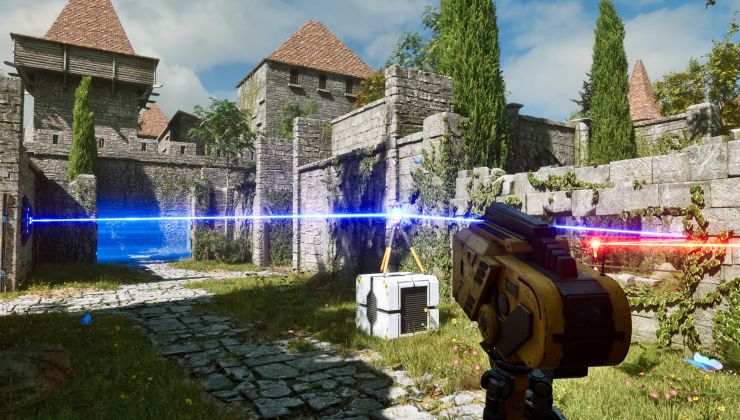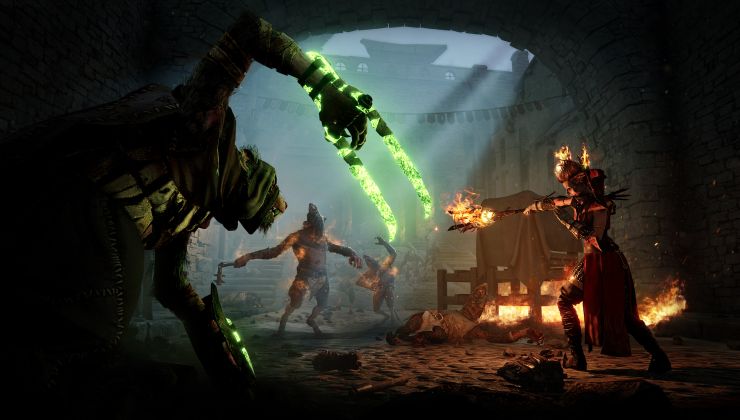The developers of Apex Legends have announced that they're going to be blocking the game completely on Linux platforms including Steam Deck.
Writing in a post on X / Twitter I'll copy it below:
Hey Legends,
We’re sharing today that Linux (and Steam Deck using Linux) will no longer be able to access Apex Legends.
Our dev team wanted to provide a bit more context into this and share some of the decision-making process that happened along the way. As mentioned in our prior anti-cheat dev blog, competitive integrity is a top priority for our team and there are many ways in which we’re battling cheaters—this is one to add to the list. We remain committed to more regular updates on topics like this and appreciate your continued reports.
Read on to hear from our Anti-Cheat Team.
---
What’s happening?
In our efforts to combat cheating in Apex, we've identified Linux OS as being a path for a variety of impactful exploits and cheats. As a result, we've decided to block Linux OS access to the game. While this will impact a small number of Apex players, we believe the decision will meaningfully reduce instances of cheating in our game.
Linux is used by default on the Steam Deck. There is currently no reliable way for us to differentiate a legitimate Steam Deck from a malicious cheat claiming to be a Steam Deck (via Linux).
Decision making process
The openness of the Linux operating systems makes it an attractive one for cheaters and cheat developers. Linux cheats are indeed harder to detect and the data shows that they are growing at a rate that requires an outsized level of focus and attention from the team for a relatively small platform. There are also cases in which cheats for the Windows OS get emulated as if it’s on Linux in order to increase the difficulty of detection and prevention.
We had to weigh the decision on the number of players who were legitimately playing on Linux/the Steam Deck versus the greater health of the population of players for Apex. While the population of Linux users is small, their impact infected a fair amount of players’ games. This ultimately brought us to our decision today.
Next steps
To eliminate this cheat vector, we have made the decision to prevent access to the game for Linux users. This means that Apex Legends will be unplayable immediately for those running this operating system. Playing on handhelds, such as the Steam Deck, is still possible if the user opts to install Windows.
To clarify, this will not impact users who play Apex via Steam on Windows (or other supported platforms).
Thanks for everyone’s continual support and we look forward to sharing future anti-cheat updates!
---
This is only a part of our ongoing efforts towards Apex’s anti-cheat. We are continually expanding and refining our detection and banning capabilities globally. Keep an eye out for more news to come in the future. Please continue to report cheaters using the designated tools and channels. Your reports are helpful and matter to us and anti-cheat continues to be a top priority for us.
For future updates and the latest info, continue to follow us here or check out the Apex Tracker Trello for bugs or concerns we’re investigating.
Valve are really going to need to do something more about the anti-cheat situation on Linux. We only recently had GTA Online in GTA V blocked (single-player still works). EA also broke the likes of Battlefield 1 and various other multiplayer games as well on Linux / Steam Deck, and I did say it was likely only a matter of time until EA messed with Apex. The list of blocked titles just keeps going like Roblox too — it's just a repeating problem that seems to have no end in sight.

Soon then the official Steam Deck rating from Valve will drop from Playable to Unsupported. Update 18:16 UTC - Valve have now marked it as Unsupported on Steam Deck.
When you try to play on a Linux platform now, you're just given an anti-cheat message. So this is the end of Apex Legends on Linux and Steam Deck.

How much of a loss is it? Well, for Apex fans on Linux platforms it will of course be a big one. However, looking at Valve's own stats, Apex isn't actually in the Top 100 for the last month of most played games on Steam Deck. The past year though? It's number #48 overall.
Oh, and before you suddenly go "but…but Microsoft are banning kernel-level anti-cheat!" — no they're not. Various YouTube videos and other media made headlines about it, but they're wrong which I wrote about before. Even if in some far-away future Microsoft managed to do so, companies will still block Linux directly if they wanted to (and they already do like Roblox!).
In related news, Valve only announced yesterday that Steam store pages will need to properly note what kernel-level anti-cheat they use.
I guess the question becomes, how much more? If it's "a little more" then they're shortsighted jerks who could probably make the cost back just from more people coming to a game without cheaters. If it's "now each additional player will put them further in the hole" more, then that's not a real solution.It very much depends upon the type of game, it's more expensive for FPS games (valorant is an example) and less expensive for an RPG (Diablo 3). When you're talking about the big multiplayer games there's essentially a choice between the up-front development of a server-side game or a continuous outlay of money combating client-side cheaters. I'm of the opinion that this really boils down to whether they're afraid the game will fail, because in that case the up-front costs are lost and the continuous costs are never realized.
I bought ea wrc sports but i get error with ge proton 18






 How to set, change and reset your SteamOS / Steam Deck desktop sudo password
How to set, change and reset your SteamOS / Steam Deck desktop sudo password How to set up Decky Loader on Steam Deck / SteamOS for easy plugins
How to set up Decky Loader on Steam Deck / SteamOS for easy plugins
See more from me